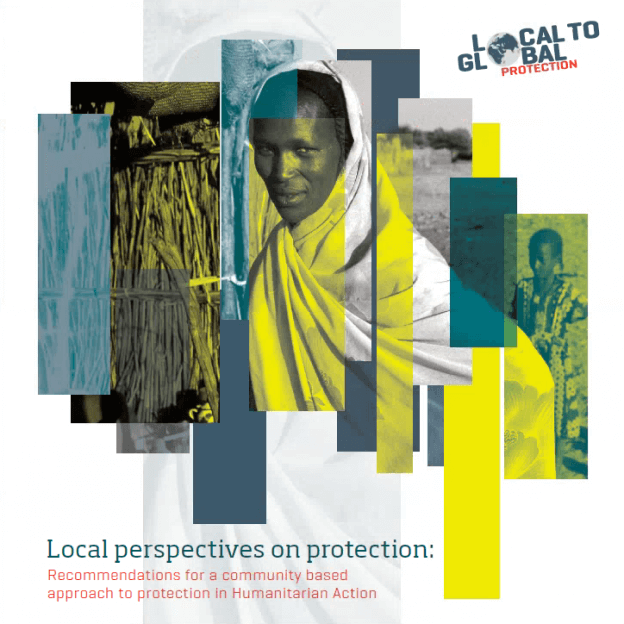This leaflet sums up main lessons from a series of studies on community-based protection, by the Local to Global Protection Initiative (L2GP). The aim of the leaflet is to offer humanitarian practitioners a set of recommendations on how they can strengthen protection of people and communities-at-risk by placing locally rooted strategies and experiences at the very center of the planning and implementation of humanitarian action.
This underscores the essential element of results-based protection, starting with the affected population and building from community solutions.
- Recommendations One and Three and Nine underscore the importance of a continuous, robust, context-specific protection analysis based on local communities’ own knowledge and existing protection strategies as well as a disaggregated understanding of the nuances and diversity of effect that protection threats and opportunities have within communities.
- Recommendation Four highlights the primacy of local actors and, as noted above, recommends that where possible, the international community take a more facilitative or enabling role to planning, implementation, and coordination of protection interventions.
- Recommendation Five emphasizes the need for greater flexibility to adapt to contextualized and rapidly changing protection threats and strategies where standardized approaches often have limited value. Flexibility is a critical factor in the problem-solving approach to results-based protection.
